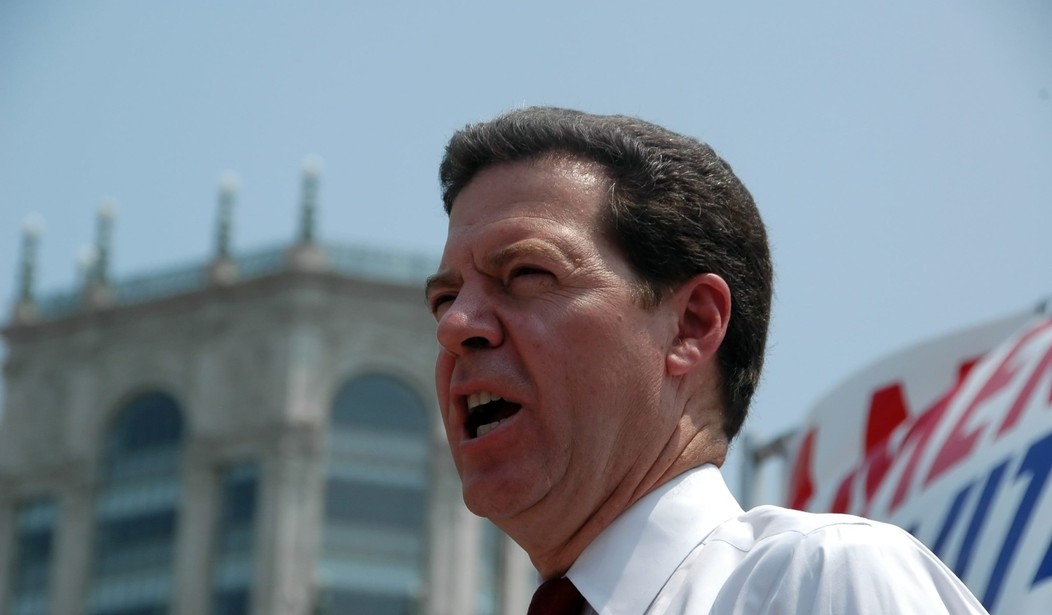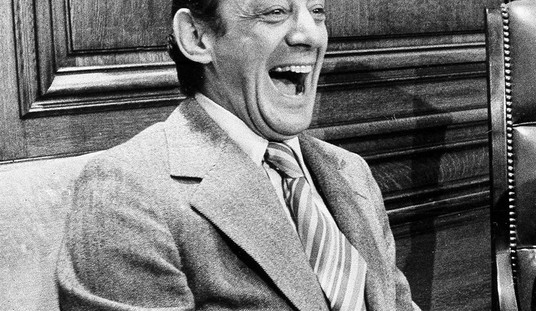Moderate Republicans rejoiced as they added up their victories the morning after Kansas’ primary election at the beginning of the month.
More than a dozen incumbent, conservative GOP members of the state’s legislature, who were allied with Gov. Sam Brownback (R), were defeated in contested primaries.
The tide had turned, proclaimed jubilant members of the loyal opposition.
But is Gov. Sam Brownback reading the same writing on the walls of state power in Topeka that they are seeing?
“I’m hoping that he does look at the numbers,” Tom Cox, one of the GOP moderates who ousted a conservative House incumbent, told the Kansas City Star. “I think the will of the people has shone through in these races. I hope he honors and respects that.”
But it is not like Brownback hasn’t stood tall against opposition before. He has been faced with the Save Kansas Coalition, which is composed of every living Kansas governor, and hasn’t blinked.
Former Gov. John Carlin, who is a member of that anti-Brownback group, told the Topeka Capital-Journal the primary victories represented a new opportunity to shift the base of power in state government.
“It’s step one,” Carlin said. “In November, there needs to be additional progress.”
However, Democrat Sen. Laura Kelly said she expects Brownback to “just retreat and dig in” for the next two years, the remainder of his second term in office.
Michael Smith, an Emporia State University political science professor, said it seemed to him that every time Gov. Brownback is dealt a bad hand, he “just doubles down.”
“You would think there would be some sense of, ‘OK, the voters have spoken,’ but he has never said that,” Smith said.
Kelly and Smith might be right about the governor’s resolve. Brownback spokeswoman Eileen Hawley said an “anti-incumbency sentiment” could be blamed for the conservative GOP defeats, not voter dissatisfaction with the governor and his austere tax policies.
“Governor Brownback looks forward to working with strong Republican majorities in the Legislature,” she said.
Dinah Sykes, one of the moderate Republicans who unseated a conservative incumbent in the state Senate primary, said it was the voice of voters who were specifically angry with Brownback’s economic politics that was behind the Aug. 2 purge.
“People, they were frustrated,” Sykes told the New York Times. “They were ready for people to listen to them and be accountable to them.”
Sykes defeated Sen. Greg Smith in the Republican primary. He agreed there was some “discontent” with Gov. Brownback.
But Smith also chalked up his loss to “folks who register as Republicans because they know that’s the only way they can win office.”
The GOP does run Kansas. There is no doubt about that. Democrats know that if they are going to slow down Brownback’s supply-side economic policies, they will need to form a coalition with moderate Republicans.
There’s no sign that those hoping to unseat Brownback allies will have any less campaign ammunition before the first Tuesday in November or a shortage of steel for their spines once in office.
KMUW-Radio, the NPR station in Wichita, reported Aug. 9 that farmers, who haven’t been paying state income tax since the Brownback tax-cutting plan was implemented in 2012, have also not had to pay state income tax on the federal subsidies they receive.
Those federal subsidies add up to about $1 billion a year in untaxed income for the farmers, some of whom think that’s a mistake, too.
“We feel if you’re making the money you should pay the taxes,” Donn Teske, president of the Kansas Farmers Union, said. “If a person is making a profit in whatever they’re doing, they ought to pay their fair share of the taxes.”
Three days later, state Budget Director Shawn Sullivan asked all state agencies and universities to report back to him on how an across-the-board 5 percent funding cut would affect their operations.
Brownback had already ordered spending reductions in May and June to keep the budget together until the legislature recessed. That included 4 percent funding cuts for the universities and to Medicaid provider reimbursement rates.
Brownback spokeswoman Eileen Hawley stressed, following the Sullivan request, that no decisions had been made.
“It is a common practice to ask state agencies to think about a reduced budget,” she said in an email.
Still, Senate Minority Leader Anthony Hensley (D) told the Wichita Eagle Sullivan’s request left no doubt in his mind that the Brownback team knows Kansas state government is not going to be able to pay its bills or meet its funding requirements.
“The Legislature passed an unbalanced budget for the first time in my memory, and Brownback and Sullivan understand that it’s not sustainable, so as a consequence they have to cut the budget even further,” said Hensley.
So, those Democrats and moderate Republicans are hoping enough voter anger will be present in the November general election to return the balance of power to what existed in 2012, before Brownback and his allies ousted a group of GOP legislators.
“Four years ago, the Kansas Chamber, Americans for Prosperity, Club for Growth and the governor’s folks orchestrated a series of despicable campaigns,” said Steve Morris, who lost his job as Senate president in the 2012 election. “People of Kansas had never seen that before. They swallowed the false promises, lies and half-truths.”









Join the conversation as a VIP Member